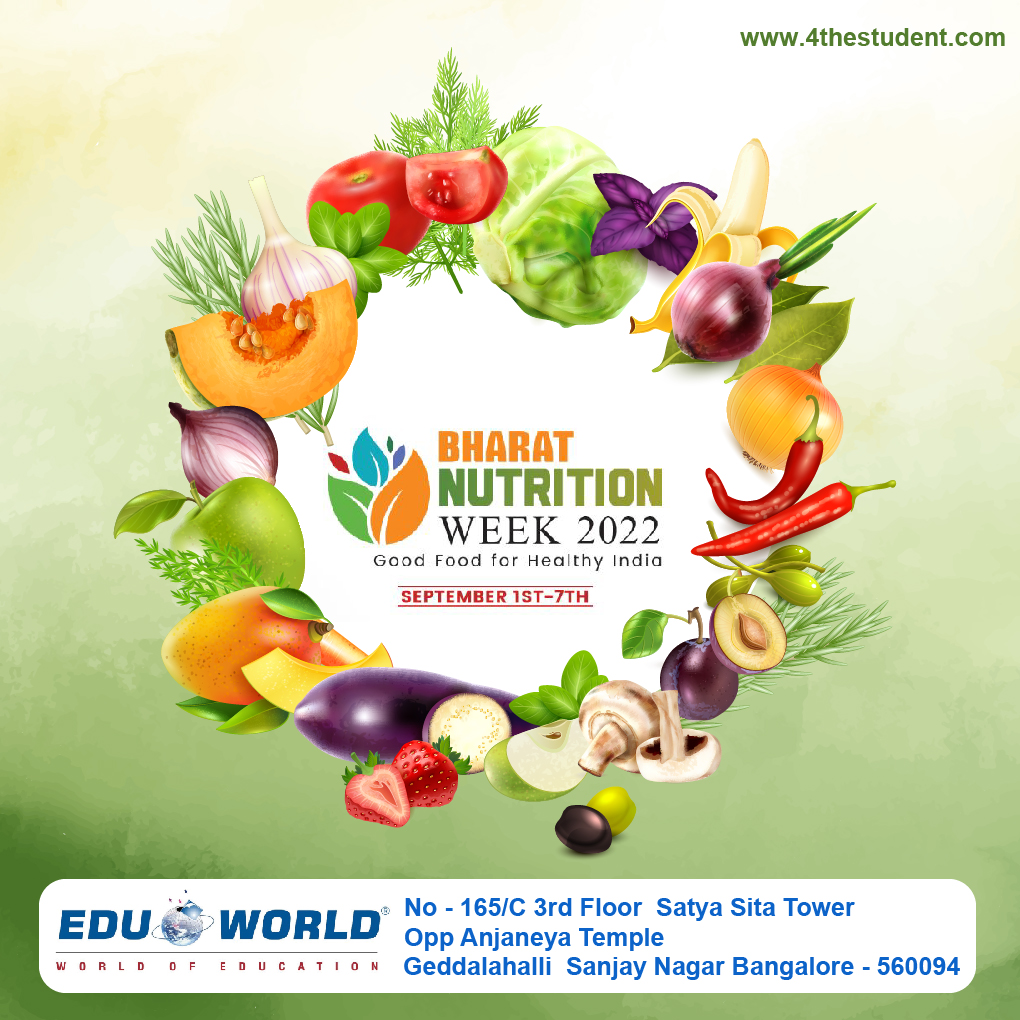The national nutrition week is celebrated from September 1 to September 7th of every year, to spread awareness about the under-nutrition conditions and the effects of nutritional deficiency. This year’s theme is “celebrate the world of flavours”. The importance of food and nutrition in human development is widely recognizes in both high income and middle to low-income countries. Nutrition is the foundation for development and good nutrition is a human right. Malnutrition in all its forms amounts to an intolerant burden not only on national health systems but the entire cultural, social and economic fabric of nations and is the greatest impediment to the fulfilment of human potential. Investing in nutrition therefore makes an economic sense because it reduces health care costs, improves productivity and economic growth and promotes education, intellectual capacity and social development for present and future generations. Malnutrition amongst women is one of the prime causes of low birth-weight babies and poor growth. Low birth weight is a significant contributor to infant mortality. Moreover, low birth weight babies who survive are likely to suffer growth retardation and illness throughout their childhood, adolescence and into adulthood and growth retarded adult women are likely to carry on the vicious cycle of malnutrition by giving birth to low-birth-weight babies. Our then Prime Minister Dr. Manmohan Sign had once referred to under nutrition as a matter of national shame. Despite substantial improvement in health and well-being, under-nutrition remains a silent emergency in India. The contributing factors for under-nutrition are household food insecurity and intrahousehold food distribution, imbalanced diet, inadequate preventive and curative health services, and insufficient knowledge of proper care and infant feeding practices. Preventing under-nutrition has emerged as one of the most critical challenges to India’s development planners in recent times. India, acknowledging that the problem of malnutrition is multi-dimensional, multi-sectoral and inter-generational in nature, and that a single sector scheme cannot address the multifaceted problem, introduced a number of schemes to improve nutrition needs of children and pregnant mothers from time to time under different ministries. On of the flagship program started in 1975 is integrated child development services (ICDS). ICDS has been instrumental in improving the health of mothers and children under age 6 by providing health and nutrition education, health services, supplementary food, and pre-school education. Other programs impacting on under-nutrition include the Mid-day meal scheme, the National Rural Health Mission, the Public Distribution System (PDS), Kishori Shakti Yojana (KSY) and nutrition programme for adolescent girls (NPAG), SABLA etc. Besides these various nutrition prophylaxis programmes are also being run to prevent nutritional deficiency diseases. The challenge for all these programs and schemes is how to increase efficiency, impact and coverage. With the setting up of the Prime Minister’s Nutrition Council and the Ministry of women and child development’s (WCD) own proposals towards restricting of ICDS into a mission, there is a need to work out details on how ICDS can be reformed to ensure the best interests of the child. It is also well understood that service for children in this age group, especially tackling malnutrition requires convergence of many departments especially of health and ICDS services. Nutrition Education and Awareness needs far more effort and one of the major recommendations of the PM council on nutrition envisages creating awareness of various issues related to combating malnutrition.
Edu world also intends to address malnutrition and to generate awareness to tackle the problem by formulating strategies, policies and plan of action thereby improving the nutrition status of the community.




